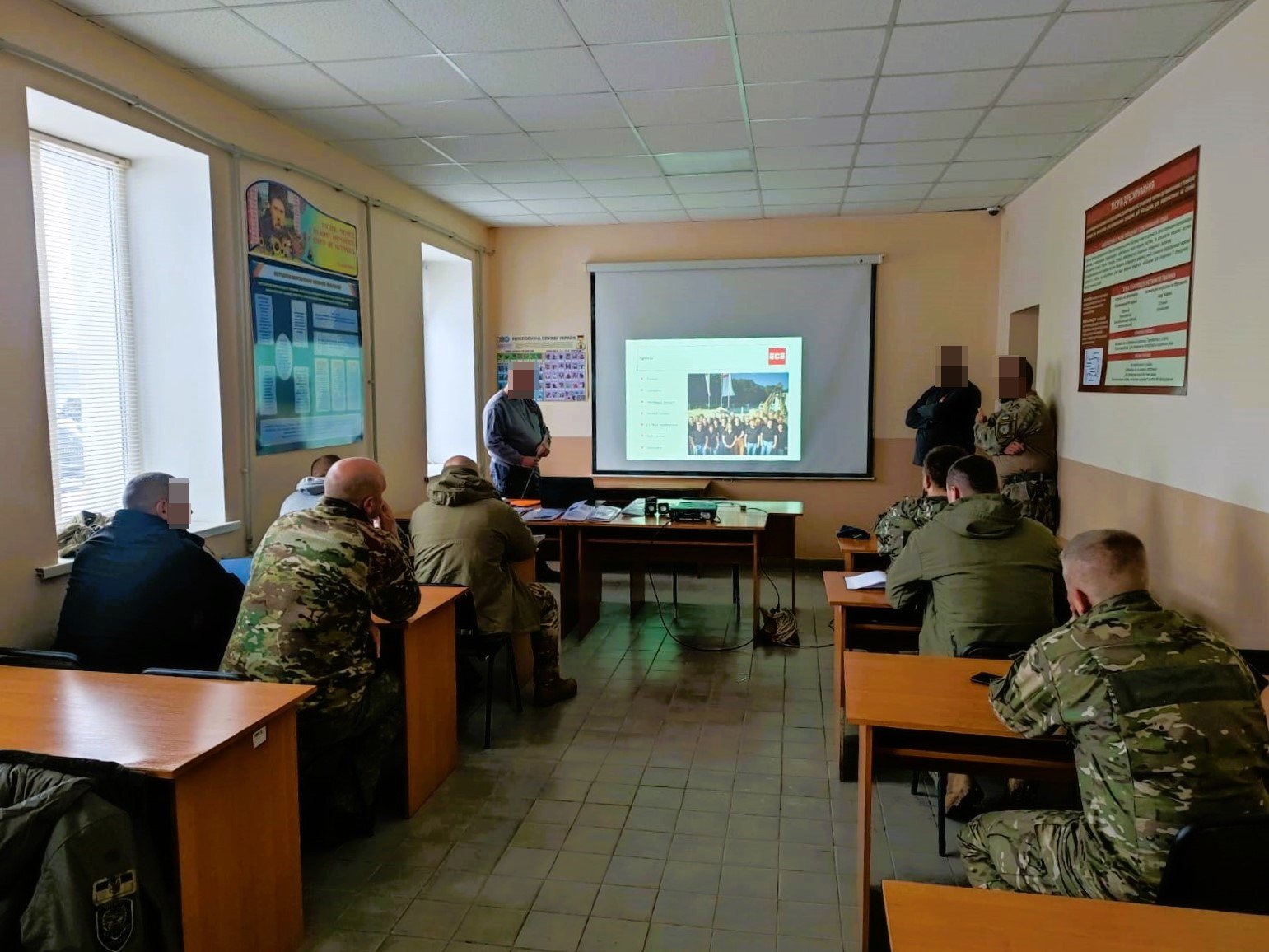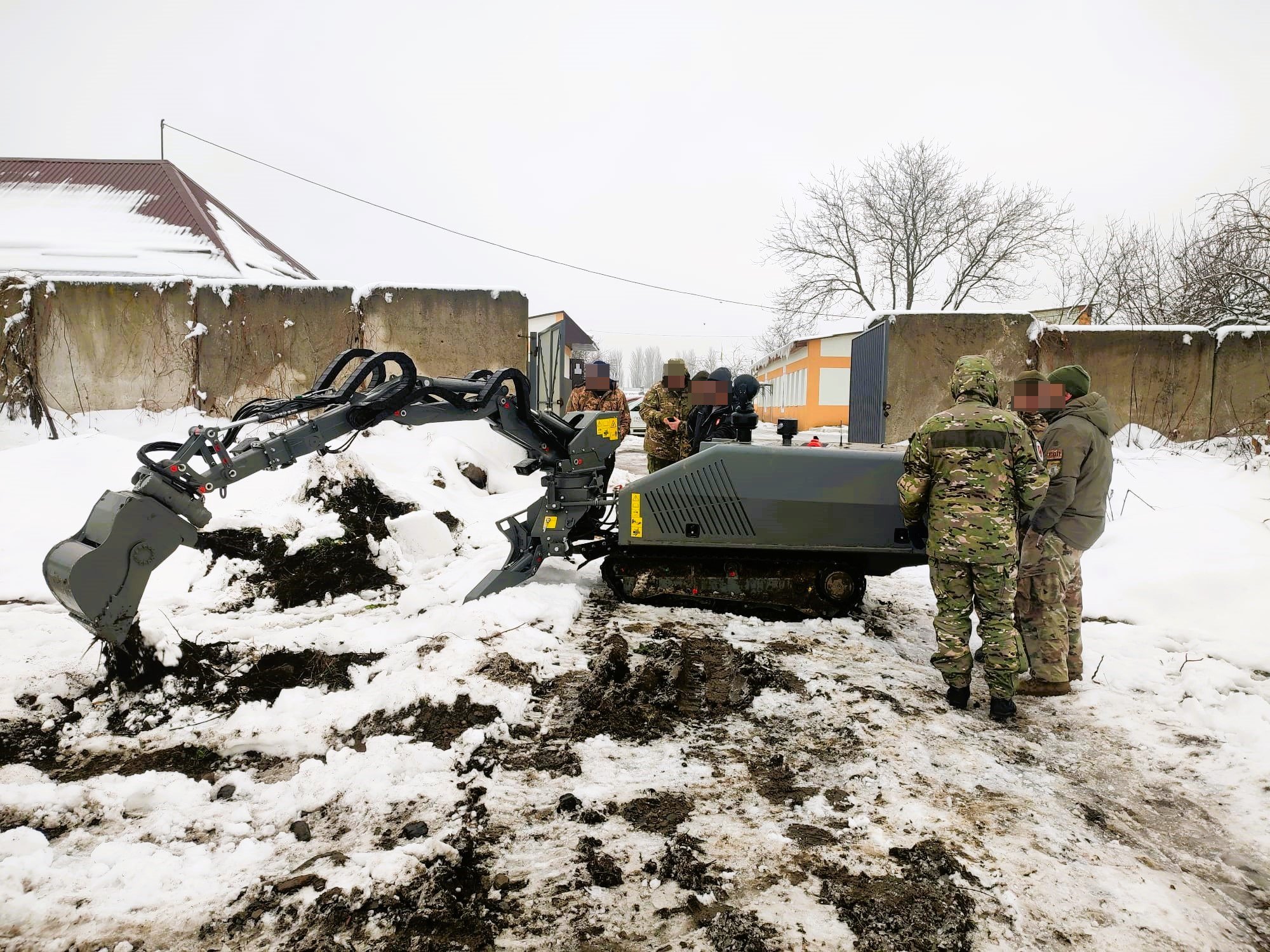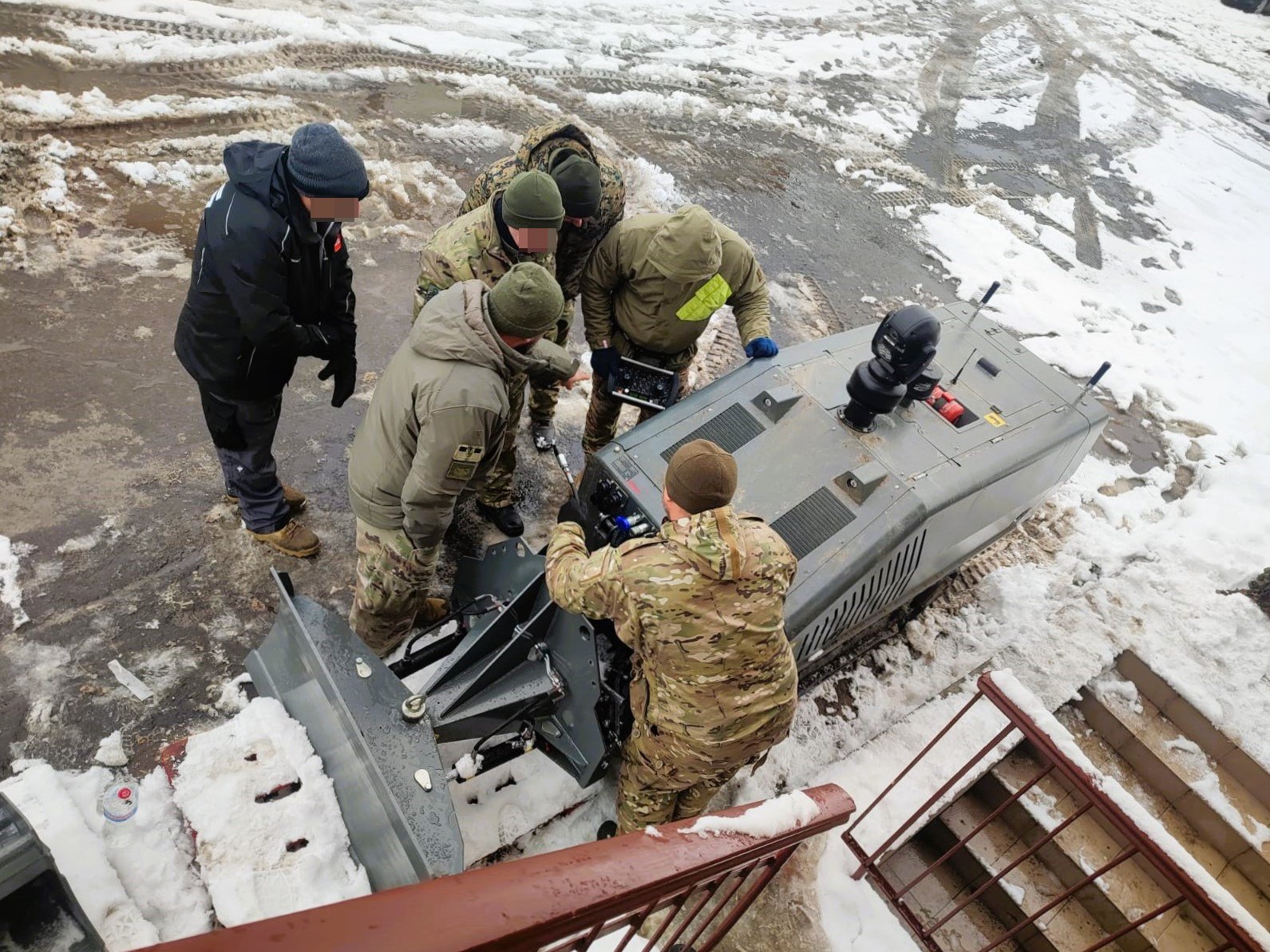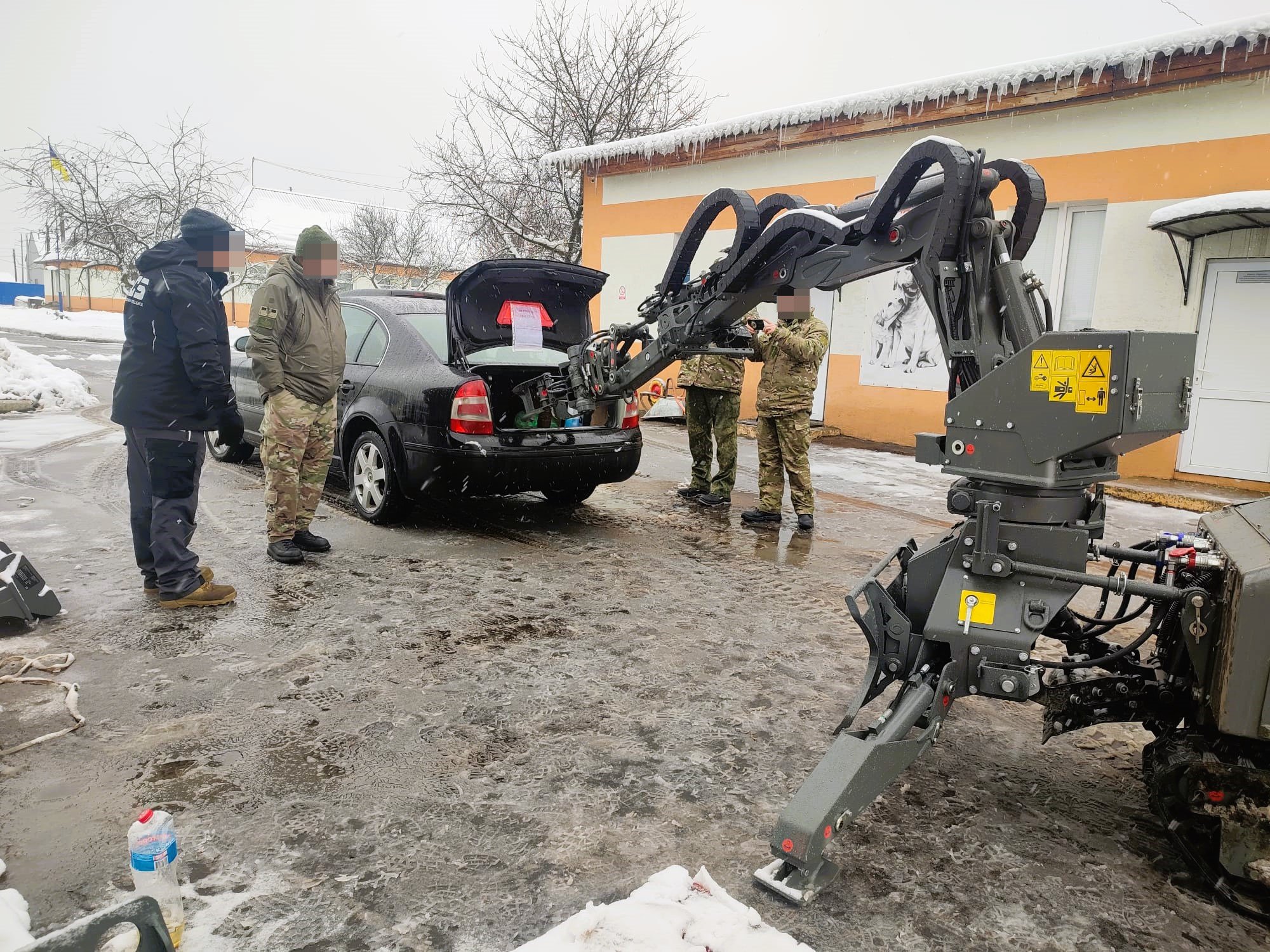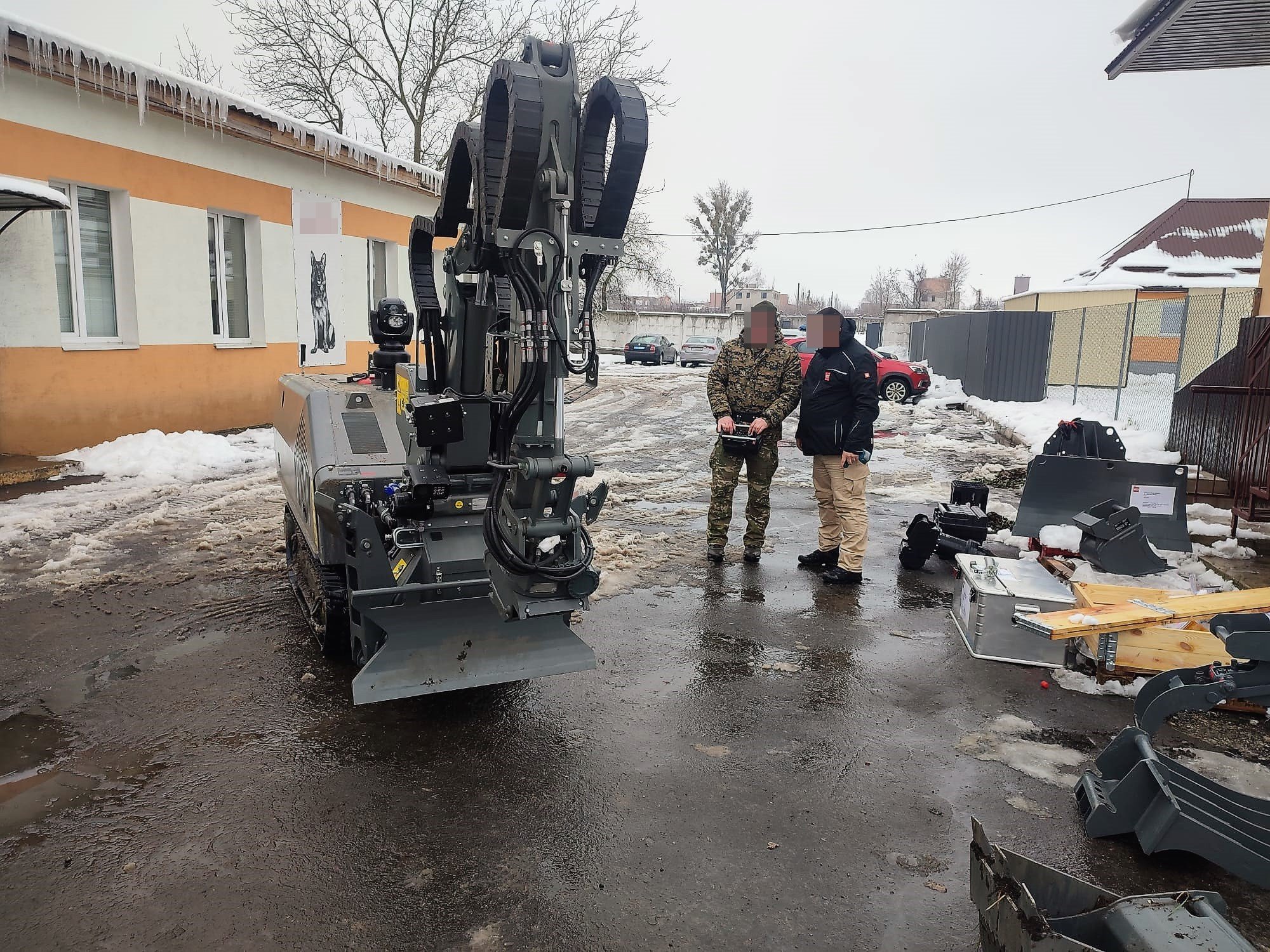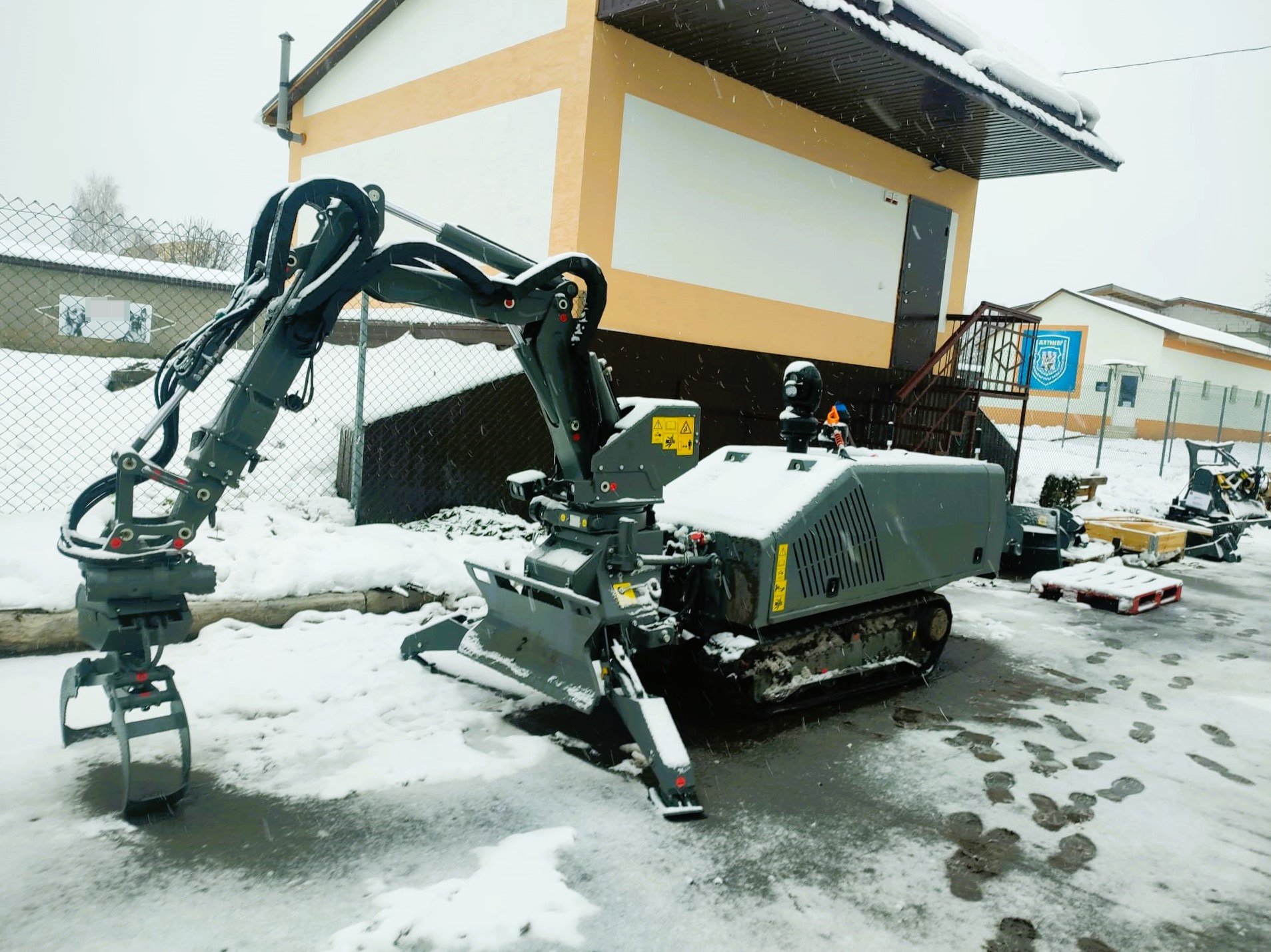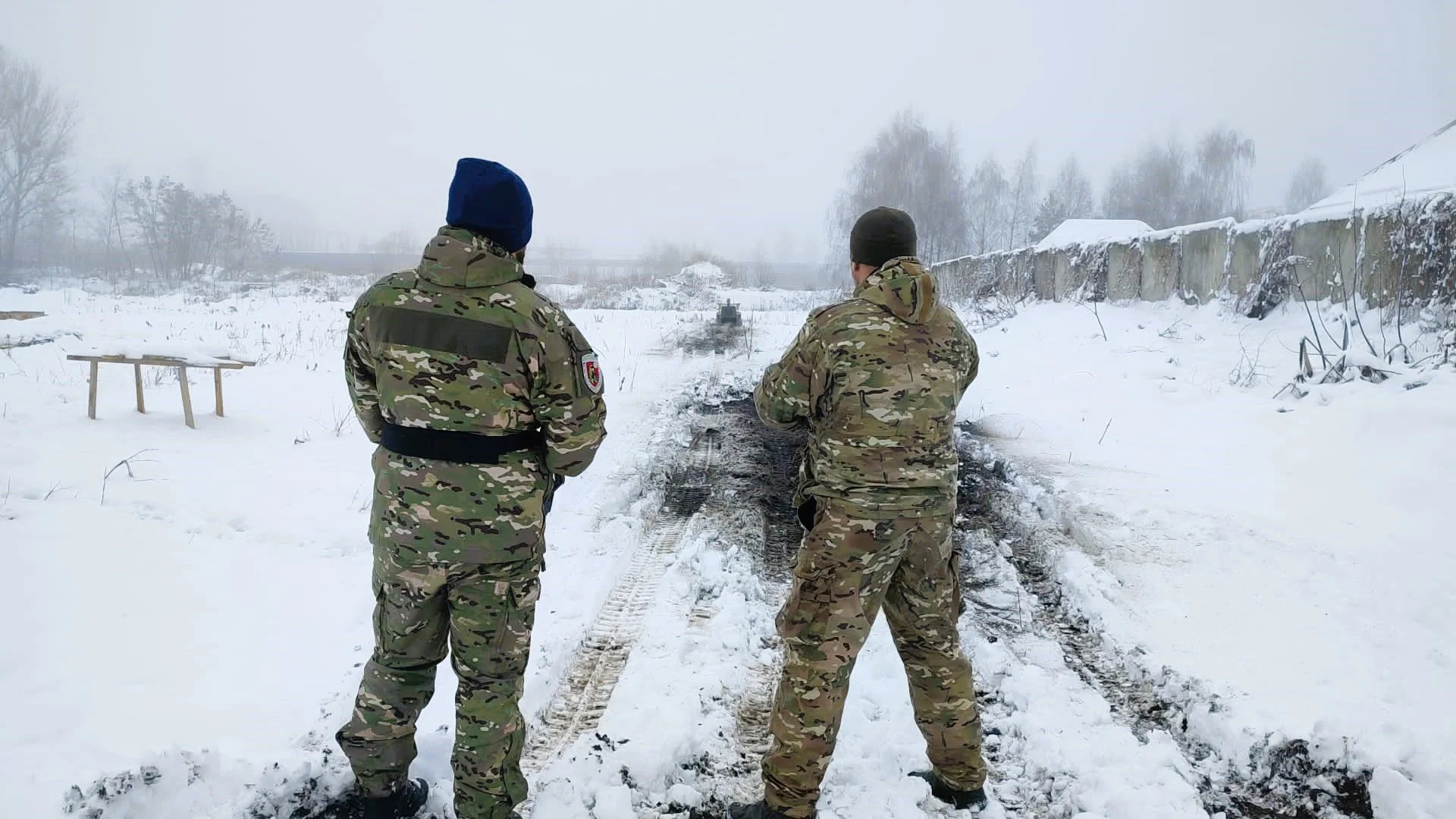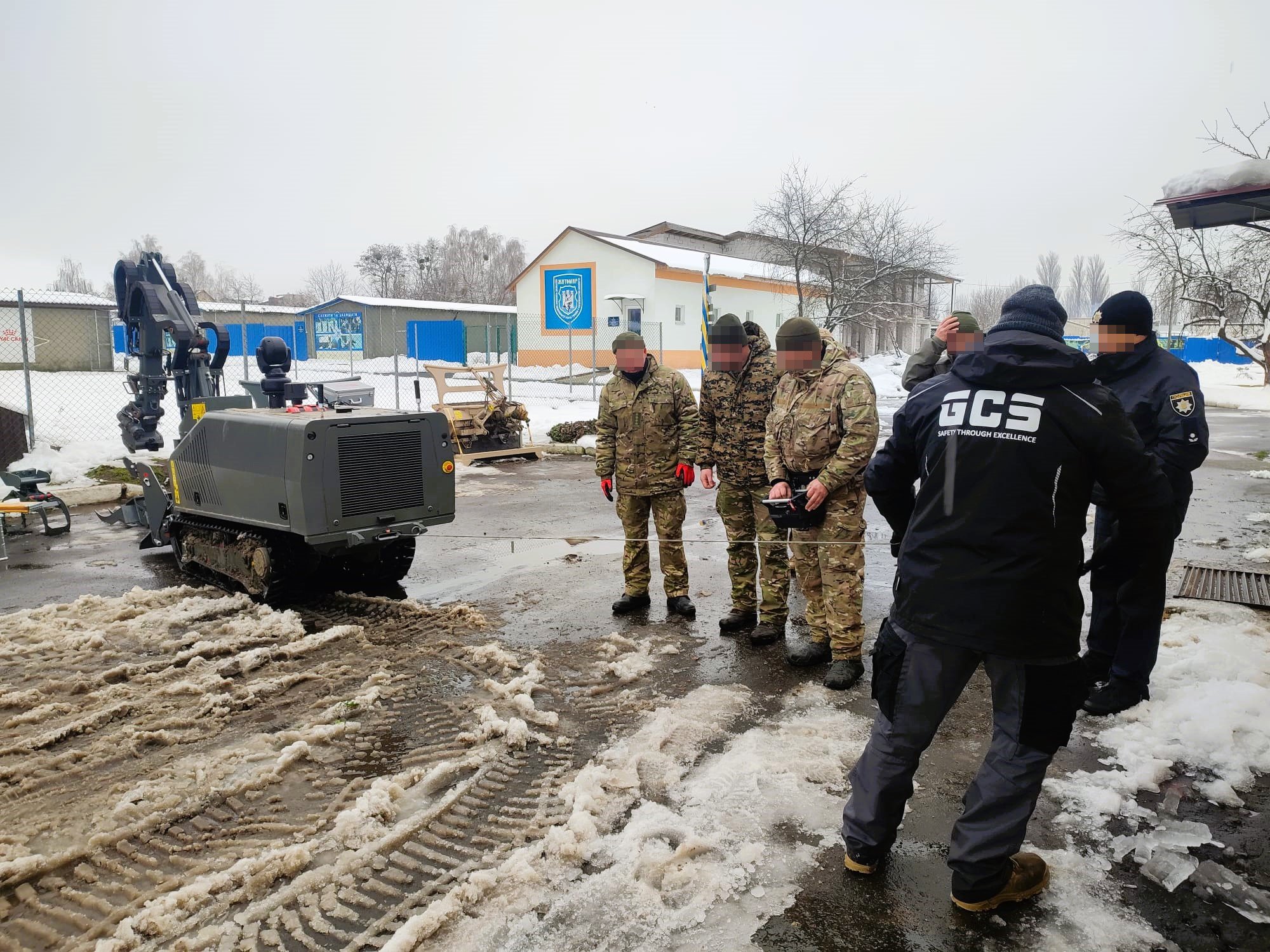A silver lining during the depth of winter. GCS recently delivered a series of remote-controlled demining systems to a police barracks in Zhytomyr, west of Kyiv. This comes after the Federal Republic of Germany donated a set of GCS-100s to the National Police of Ukraine (NPU) to fast-track the clearance of explosive hazards caused by the war.
EOD specialists in Ukraine are tasked with clearing large scale contamination amid harsh conditions.
The contract includes a two-week specialist Explosive Ordnance Disposal (EOD) training program to equip the NPU with basic operating skills. Its compact size, robotic arm and onboard camera system are some features that make the GCS-100 fit for clearing Ukraine's inner cities.
“We are currently working with the police's EOD unit. We are showing all the operating controls and capabilities of the machine. We've got very limited time here because the guys need to be going out to the field straight away," says the senior technician tasked with instructing the course. GCS technicians working in Zhytomyr have asked to remain anonymous for safety concerns. Ukrainian state media, Suspilne News, recently reported on how the robotic tools can help mitigate threats from safe distances.
“This is a very different theatre of operations than we have ever dealt with. Some very high-tech munitions must be disposed of. They are tricky and very dangerous to approach at any point. Russians, when they depart, they booby trap things. Even light bulbs in homes can be converted into bombs”
Modern minefields
"The guys that we are training, a lot of them have been right out in the front end and have already been clearing landmines and rockets that have failed or plummeted into buildings, people's houses, are stuck in wooden floors or garden sheds," says the instructor. "The police are short-staffed and just busy the whole time," he adds.
Ukraine police receive specialist training on how to operate the GCS-100 demining system in Zhytomyr.
Lectures on the numerous types of Explosive Ordnance (EO) were also presented to better identify hazards. Thousands of Russian-made threats, such as the banned PFM 1 or Butterfly mine, have reportedly rained down on civilian areas in recent months. While long-range missiles have targeted Ukraine's power and water stations, resulting in days without these vital resources.
GCS' instructor, who has been active in humanitarian demining for over two decades, says the situation is simply unreal. "This is a very different theatre of operations than we have ever dealt with. Some very high-tech munitions must be disposed of. They are tricky and very dangerous to approach at any point. Russians, when they depart, they booby trap things. Even light bulbs in homes can be converted into bombs."
“In addition to the training course, we will conduct a mentoring program to help the client become even more efficient so that the police can become trainers ”
Reliability is key
Fabian Klauser, Head of Services at GCS, explains that a dedicated global maintenance team remains on standby to ensure that the demining systems are functioning optimally. Klauser says, "In addition to the training course, we will conduct a mentoring program to help the client become even more efficient so that the police can become trainers themselves."
Essential deminer operating skills are growing in demand. Clearance of anti-personnel and increasingly anti-tank mines has become even more urgent. One year after the conflict began, manual demining alone is simply unfeasible.
The US State Department estimates that about 160 000 square kilometres of Ukrainian territory will need to be tested for explosive hazards. The subzero temperatures currently felt across Europe add to the anguish. Experts say it will take decades for Ukraine to be declared mine-free. When and if this war ends, severe wounds will likely remain.
